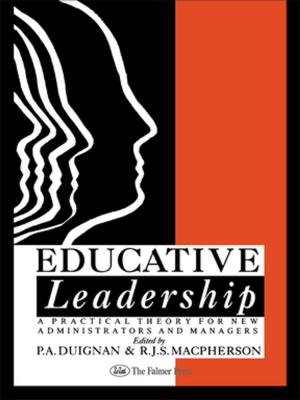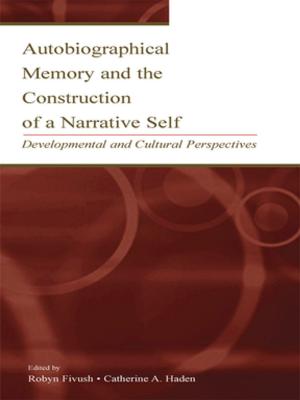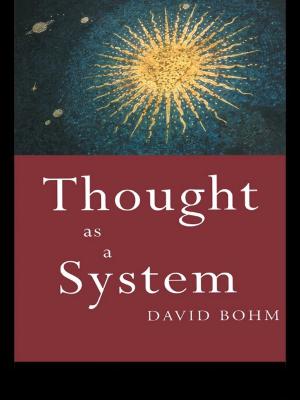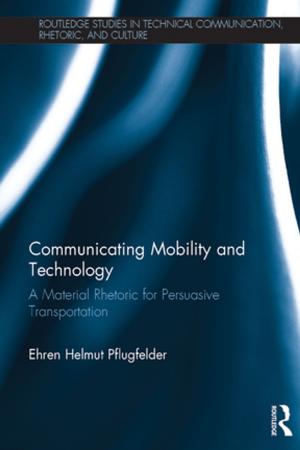Internet Environments for Science Education
Nonfiction, Reference & Language, Education & Teaching, Teaching, Computers & Technology, Teaching Methods| Author: | Marcia C. Linn | ISBN: | 9781135631833 |
| Publisher: | Taylor and Francis | Publication: | July 4, 2013 |
| Imprint: | Routledge | Language: | English |
| Author: | Marcia C. Linn |
| ISBN: | 9781135631833 |
| Publisher: | Taylor and Francis |
| Publication: | July 4, 2013 |
| Imprint: | Routledge |
| Language: | English |
Internet Environments for Science Education synthesizes 25 years of research to identify effective, technology-enhanced ways to convert students into lifelong science learners--one inquiry project at a time. It offers design principles for development of innovations; features tested, customizable inquiry projects that students, teachers, and professional developers can enact and refine; and introduces new methods and assessments to investigate the impact of technology on inquiry learning.
The methodology--design-based research studies--enables investigators to capture the impact of innovations in the complex, inertia-laden educational enterprise and to use these findings to improve the innovation.
The approach--technology-enhanced inquiry--takes advantage of global, networked information resources, sociocognitive research, and advances in technology combined in responsive learning environments.
Internet Environments for Science Education advocates leveraging inquiry and technology to reform the full spectrum of science education activities--including instruction, curriculum, policy, professional development, and assessment. The book offers:
*the knowledge integration perspective on learning, featuring the interpretive, cultural, and deliberate natures of the learner;
*the scaffolded knowledge integration framework on instruction summarized in meta-principles and pragmatic principles for design of inquiry instruction;
*a series of learning environments, including the Computer as Learning Partner (CLP), the Knowledge Integration Environment (KIE), and the Web-based Inquiry Science Environment (WISE) that designers can use to create new inquiry projects, customize existing projects, or inspire thinking about other learning environments;
*curriculum design patterns for inquiry projects describing activity sequences to promote critique, debate, design, and investigation in science;
*a partnership model establishing activity structures for teachers, pedagogical researchers, discipline experts, and technologists to jointly design and refine inquiry instruction;
*a professional development model involving mentoring by an expert teacher;
*projects about contemporary controversy enabling students to explore the nature of science;
*a customization process guiding teachers to adapt inquiry projects to their own students, geographical characteristics, curriculum framework, and personal goals; and
*a Web site providing additional links, resources, and community tools at www.InternetScienceEducation.org
Internet Environments for Science Education synthesizes 25 years of research to identify effective, technology-enhanced ways to convert students into lifelong science learners--one inquiry project at a time. It offers design principles for development of innovations; features tested, customizable inquiry projects that students, teachers, and professional developers can enact and refine; and introduces new methods and assessments to investigate the impact of technology on inquiry learning.
The methodology--design-based research studies--enables investigators to capture the impact of innovations in the complex, inertia-laden educational enterprise and to use these findings to improve the innovation.
The approach--technology-enhanced inquiry--takes advantage of global, networked information resources, sociocognitive research, and advances in technology combined in responsive learning environments.
Internet Environments for Science Education advocates leveraging inquiry and technology to reform the full spectrum of science education activities--including instruction, curriculum, policy, professional development, and assessment. The book offers:
*the knowledge integration perspective on learning, featuring the interpretive, cultural, and deliberate natures of the learner;
*the scaffolded knowledge integration framework on instruction summarized in meta-principles and pragmatic principles for design of inquiry instruction;
*a series of learning environments, including the Computer as Learning Partner (CLP), the Knowledge Integration Environment (KIE), and the Web-based Inquiry Science Environment (WISE) that designers can use to create new inquiry projects, customize existing projects, or inspire thinking about other learning environments;
*curriculum design patterns for inquiry projects describing activity sequences to promote critique, debate, design, and investigation in science;
*a partnership model establishing activity structures for teachers, pedagogical researchers, discipline experts, and technologists to jointly design and refine inquiry instruction;
*a professional development model involving mentoring by an expert teacher;
*projects about contemporary controversy enabling students to explore the nature of science;
*a customization process guiding teachers to adapt inquiry projects to their own students, geographical characteristics, curriculum framework, and personal goals; and
*a Web site providing additional links, resources, and community tools at www.InternetScienceEducation.org















